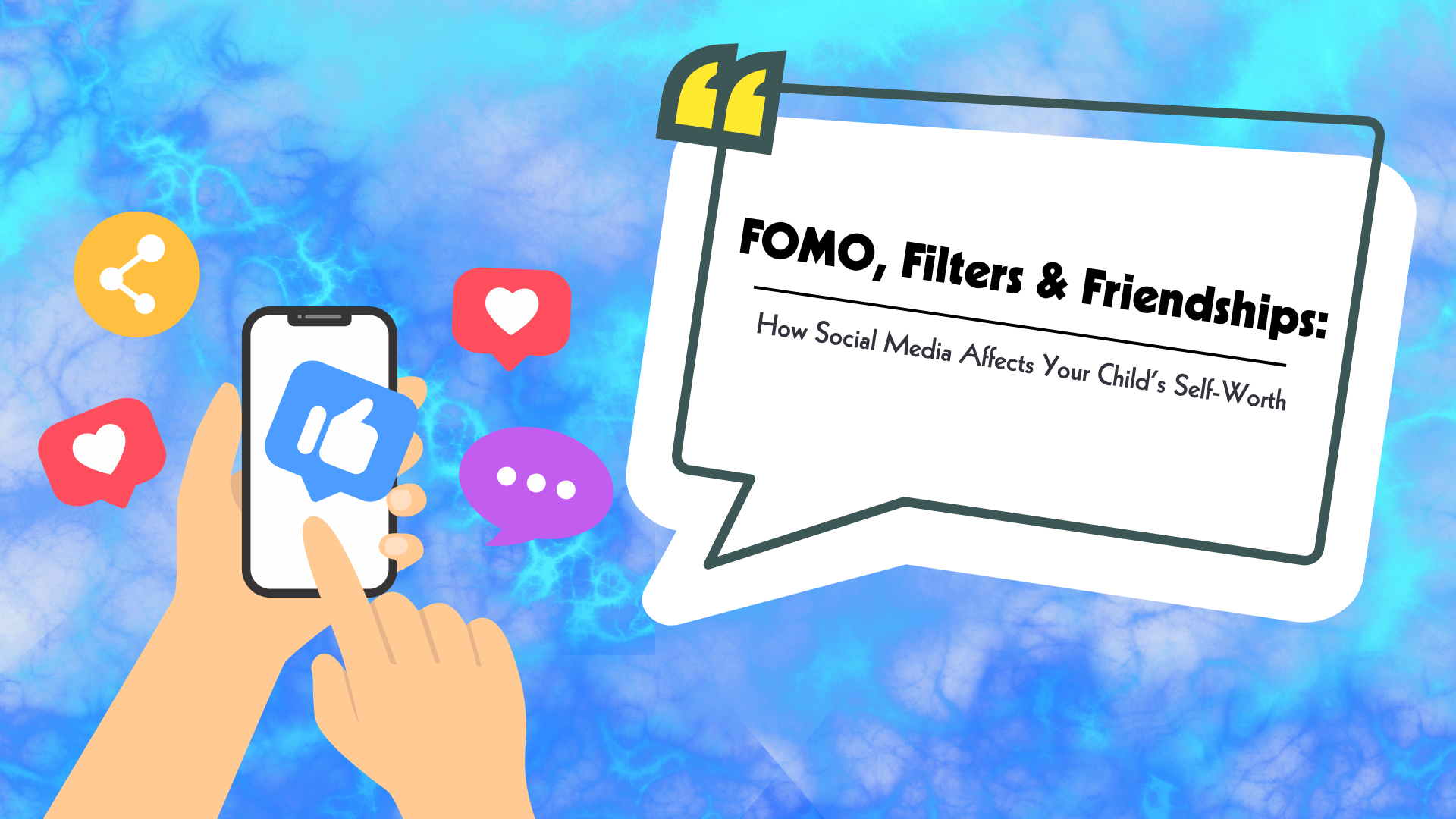DIY Mother’s Day Gifts for Kids - Perfect for Classrooms, Churches, and Home
Discover 6 easy and affordable DIY Mother's Day Gifts for Kids that parents, teachers, and leaders can make with little ones they love!
Not ready to Book? We can remind you when your event is a little closer.
Set a Reminder
In today’s digital world, many kids start using social media before they even reach middle school. Platforms like YouTube, Instagram, and TikTok are full of videos, selfies, and stories that shape how children see themselves and others. For parents, it’s important to understand how social media affects kids’ self-esteem and what you can do to help.
Let’s take a closer look at how things like FOMO, filters, and online friendships can influence your child’s mental health—and how to support them through it.
One of the most common effects of social media is FOMO, or the fear of missing out. This happens when kids see their friends having fun at parties, sleepovers, or events they weren’t invited to. Even if your child is normally confident, seeing these posts can make them feel left out or like they don’t belong.
Studies show that kids who experience FOMO are more likely to feel anxious or unhappy. They might even check their phones more often, hoping not to miss something else. Over time, this can make it harder for them to feel content with their own lives.
To help your child, talk about how social media only shows the highlights—not the full story. Remind them that everyone feels left out sometimes, even the kids who seem popular online.
Another big part of social media is filters—tools that change the way someone looks in a photo or video. Many apps make it easy to smooth skin, change eye color, or even add makeup and facial features. While filters can be fun, they also send a message that the “real” version of someone isn’t good enough.
Over time, seeing these perfect images can make kids feel insecure about their own appearance. Some may start to believe that their unfiltered face isn’t pretty or cool enough. Research shows that heavy use of filters can lead to low self-esteem and even body image problems.
Parents can help by talking openly about these effects. Point out how filters change reality, and encourage your child to follow accounts that show real, unedited images. It’s also helpful to praise your child’s unique features and strengths often—online and offline.
While social media can help kids stay connected, it also brings a new kind of peer pressure. Your child might feel like they have to post certain things just to fit in or get likes. They may try to copy trends or behaviors that don’t really reflect who they are.
In some cases, kids also face online teasing, judgment, or cyberbullying from classmates. Even small comments can make a big impact on your child’s self-image and emotional well-being.
That’s why it’s so important to check in regularly about their social media life. Ask open-ended questions like, “What kinds of things do you and your friends post?” or “Has anything online made you feel uncomfortable lately?” Keeping the conversation casual and non-judgmental will help your child feel safe opening up.
Thankfully, there are many ways you can support your child and boost their confidence in the digital age. Start by talking about social media often. Let them know it’s okay to feel jealous, awkward, or unsure sometimes. These feelings are normal, and they pass.
Also, teach your child how to think critically about what they see online. Explain that many posts are planned, edited, and staged to look perfect—even when life isn’t.
Encourage offline activities that build self-esteem, like sports, music, art, or volunteering. These experiences help kids discover their talents and feel proud of their accomplishments.
You can also set healthy screen time limits and make certain areas of your home—like bedrooms and dinner tables—tech-free zones. Finally, model the behavior you want to see. If you talk kindly about yourself and take breaks from your own screen, your child is more likely to do the same.
Social media can be fun, creative, and social—but it also affects the way kids think and feel about themselves. By learning how social media affects kids’ self-esteem, you can help your child build confidence, stay grounded, and enjoy the digital world in a healthy way. With open communication, smart habits, and lots of love, your child can grow up knowing they are more than enough—on screen and off.

Discover effective Goal-Setting Tips for Kids! Learn how to help children set and achieve goals for school, hobbies, and family life with ease.
Categories
Our latest tips, insights, and news on parenting, family, and gaming.
Discover 6 easy and affordable DIY Mother's Day Gifts for Kids that parents, teachers, and leaders can make with little ones they love!
Keep kids active and smiling with Easter games for kids! Try fun ideas like egg hunts, silly races, and hands-on holiday challenges.
Discover easy Easter crafts for kids! Make flower crowns, egg tape art, and handprint flowers for a fun and creative spring activity.